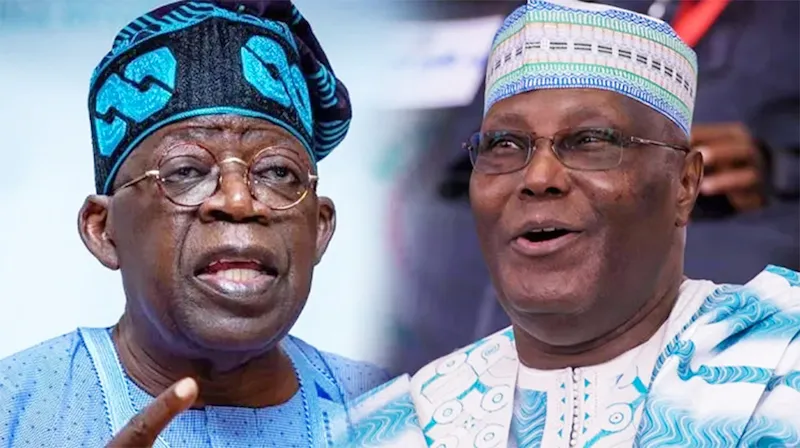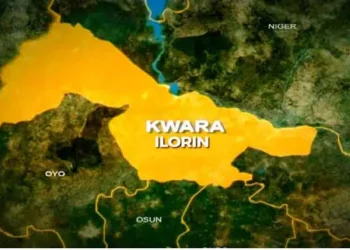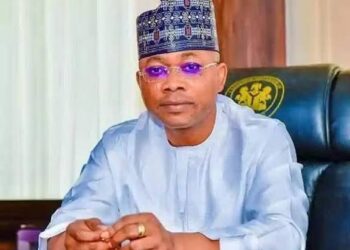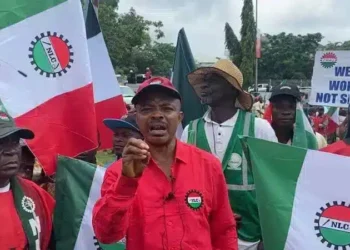Former Vice President Atiku Abubakar has delivered a scathing assessment of President Bola Tinubu’s two-year tenure, describing it as an unproductive period characterized by unprecedented incompetence and complete disconnection from Nigerian realities.
In a comprehensive statement released Wednesday to mark Tinubu’s second anniversary in office, the former Peoples Democratic Party presidential candidate argued that no previous administration has subjected Nigerians to comparable levels of economic hardship while simultaneously displaying such disregard for transparent governance principles.
“President Bola Ahmed Tinubu’s administration has established itself as among the most incompetent, disconnected, and anti-people governments in Nigeria’s entire democratic experience,” Atiku declared. “No preceding administration has imposed this magnitude of suffering on ordinary citizens while demonstrating such complete indifference to transparency, accountability, and responsible leadership.”
The former Vice President particularly criticized what he described as the administration’s systematic targeting of Nigeria’s poorest populations through policies that benefit elite interests while deepening widespread poverty. He highlighted the stark contrast between government officials’ lavish lifestyle and the deteriorating conditions faced by millions of struggling Nigerians.
Atiku cited disturbing international rankings to support his critique, noting that Nigeria has become Africa’s capital for malnourished children, surpassing even Sudan despite that country’s ongoing armed conflict. He referenced the Global Hunger Index 2024, which places Nigeria at the 18th position among nations most severely affected by hunger and malnutrition.
“Beyond maintaining our unfortunate status as the world’s poverty capital, Nigeria under this administration has achieved the tragic distinction of leading Africa in childhood malnutrition,” Atiku stated.
The former presidential candidate outlined specific policy failures that he argues demonstrate the administration’s bias toward wealthy Nigerians. He criticized recent fee increases by the National Identity Management Commission, describing the 75% hike and introduction of VIP service protocols as creating class-based systems for services that should represent basic citizenship rights.
Similarly, Atiku condemned dramatic increases in public university fees that have placed higher education beyond the reach of low-income families without corresponding support mechanisms. He argued that these policies consistently advantage the wealthy while imposing additional burdens on Nigeria’s most vulnerable populations.
Perhaps most significantly, Atiku highlighted what he characterized as reckless borrowing practices that have dramatically worsened Nigeria’s debt crisis. He revealed that the country’s total public debt has surged from approximately ₦49 trillion when Tinubu assumed office in 2023 to ₦144 trillion currently—representing a staggering 150% increase in just two years.
“While state governments have demonstrated fiscal discipline by reducing their combined debt from ₦5.86 trillion to ₦3.97 trillion, the federal government under Tinubu has emerged as the primary driver of Nigeria’s current debt emergency,” Atiku observed.
The former Vice President dismissed Tinubu’s justifications for continued borrowing, particularly claims that new loans are necessary to fund the 2025 budget and mitigate fuel subsidy removal impacts. Atiku characterized these explanations as both inadequate and dishonest, arguing that the administration’s reckless approach to subsidy removal created much of the current economic distress.
Concluding his assessment, Atiku hinted at political developments aimed at challenging the current administration, suggesting that efforts are underway to build a coalition capable of unseating Tinubu’s government. He emphasized that the stark reality of increasing wealth concentration among the elite while the poor face mounting hardships represents an unsustainable situation that demands urgent political intervention.
The statement represents Atiku’s most comprehensive criticism of Tinubu’s presidency to date and signals potential intensification of opposition political activity as Nigeria approaches future electoral cycles.



















